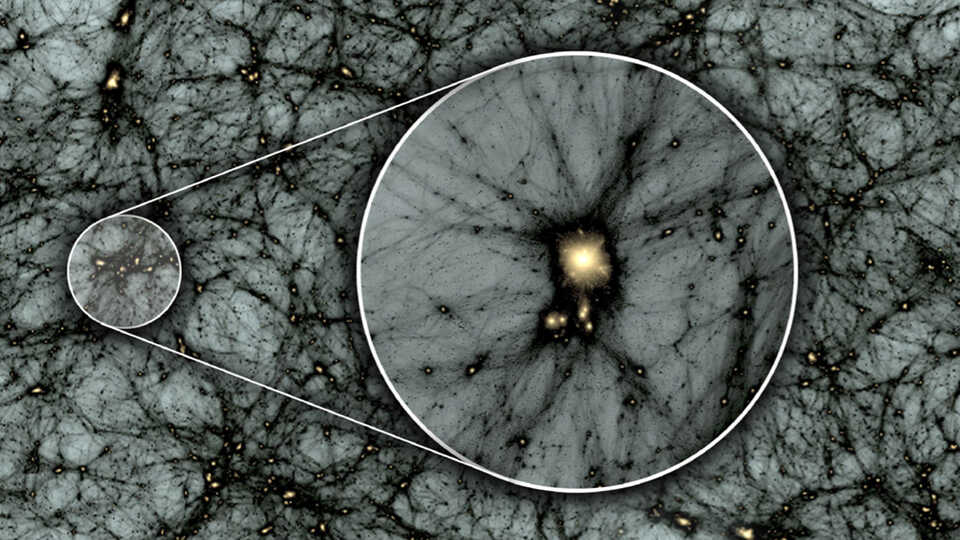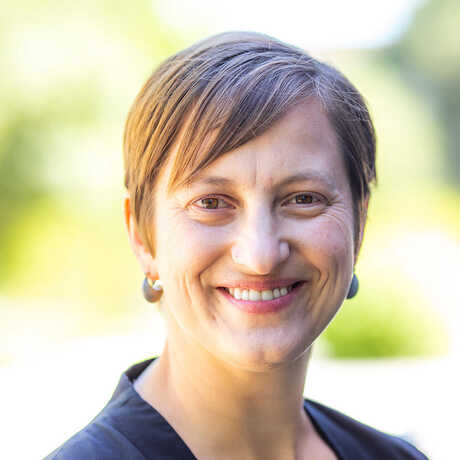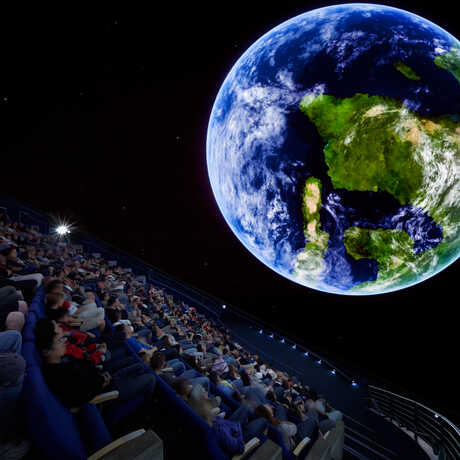Public: $15
Members and seniors: $12
All Dean Lectures are free for supporters generously giving $3,000+ annually (while supplies last). Members and donors, please log in after adding tickets to your cart to receive your discount.

This artist conception depicts an immense web of dark matter connecting galaxy clusters, constituting approximately 85 percent of the Universe.
Unveiling a Dark Universe: From Tiny Galaxies to Cosmic Maps
Monday, February 6, 2022
7:30 pm
Morrison Planetarium
Featuring Dr. Risa Wechsler, Stanford University
The Universe is dominated by a mysterious, unseen substance known as dark matter, which makes up more than eighty percent of the cosmos. In recent decades, much has been learned about dark matter, including its density and spatial distribution, but its fundamental nature—for example, what kind of particle it is, how massive it is, and how it interacts—remains largely unknown. This lecture will explain how tiny galaxies, measurements of distorted spacetime, and the largest maps of the cosmos are giving us insights into the nature of dark matter, and will describe the enormous discovery potential provided by the next decade of cosmic surveys.

Risa Wechsler is the Director of the Kavli Institute for Particle Astrophysics and Cosmology and a Professor of Physics at Stanford and of Particle Physics and Astrophysics at the SLAC National Accelerator Laboratory. Her research uses large cosmological simulations along with the biggest and most precise maps of the universe to model and measure cosmic structure, understand the physics of galaxy formation, and elucidate the nature of dark energy and dark matter. She has played a leadership role in several of these very large surveys, including the Dark Energy Survey, the Dark Energy Spectroscopic Instrument and the Vera Rubin Observatory Legacy Survey of Space and Time. Wechsler is a Fellow of the American Physical Society and the American Association for the Advancement of Science. She received her PhD in physics at the University of California Santa Cruz in 2001 and received the 2022 Distinguished Alumni Award from the University. She is passionate about broadening access to physics and astronomy and engaging the public with scientific discovery and has written about and discussed science in numerous public venues, including TED, Teen Vogue, and the BBC.
From outer space to Earth's inner core, explore the universe from Morrison Planetarium's 75-foot digital dome.
